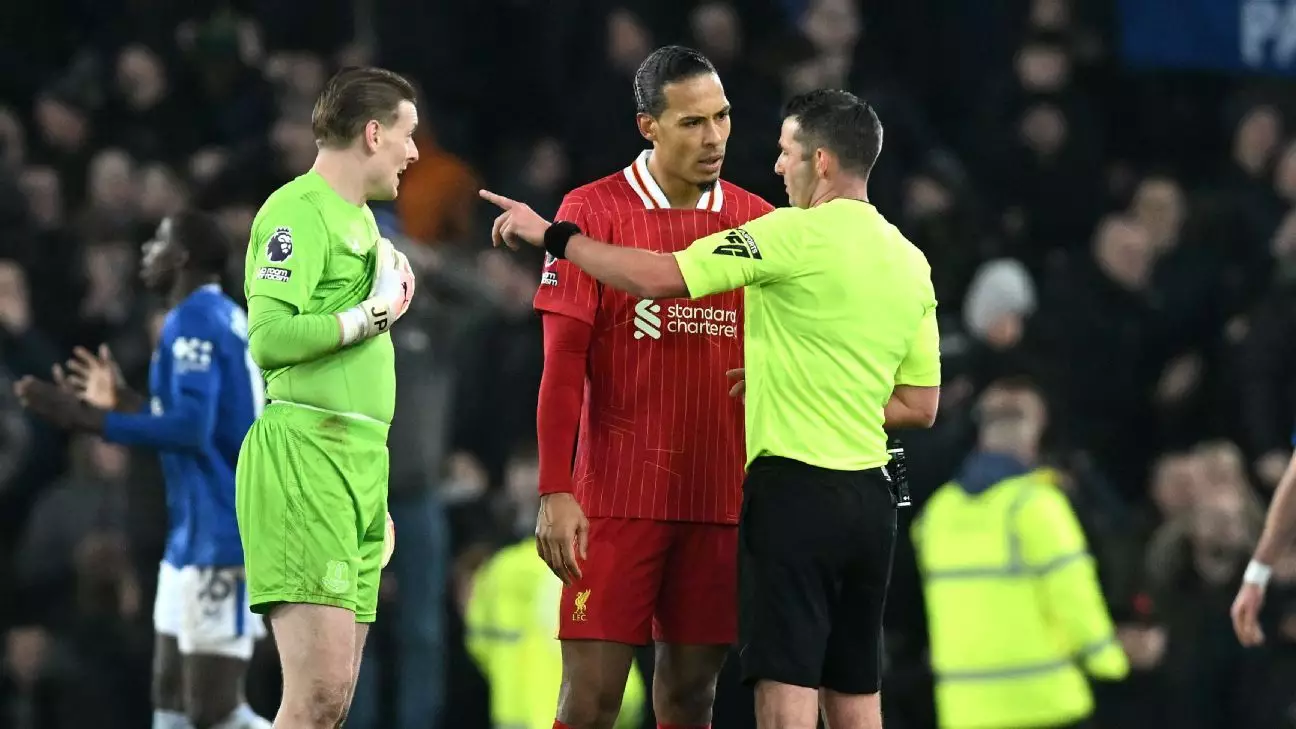The recent Merseyside derby between Liverpool and Everton was anything but ordinary, as the match culminated in a chaotic 2-2 draw, leaving both teams and their supporters in a whirlwind of emotions. Liverpool’s captain, Virgil van Dijk, eloquently stated that referee Michael Oliver “lost control” during this high-stakes clash. What unfolded after the final whistle was a remarkable testament to the intensity of rivalry, exemplified by a stunning volley from Everton’s James Tarkowski deep into stoppage time, which only added to the fray already brewing on the pitch.
The backdrop of this derby was filled with passion, but it erupted into disorder when tensions flared between players and fans. Abdoulaye Doucouré’s interaction with the Liverpool away supporters provoked a reaction, leading to an altercation that saw Curtis Jones, a young midfielder for Liverpool, confront Doucouré. This clash tore through the customary post-match decorum, sparking a brawl that demanded intervention from both stewards and police. The referee, caught in this maelstrom, responded with red cards to both players, leaving a palpable tension hanging in the air.
Van Dijk’s criticism of Oliver is noteworthy, highlighting the responsibility that referees bear during such emotionally charged matches. The captain noted, “I think the ref didn’t have the game under control in my opinion.” Such a statement resonates, particularly considering how pivotal officiating can influence not only the course of the game but also player behavior on the field. It raises questions about what constitutes effective refereeing and how it can ensure that rivalries like this don’t devolve into mere chaos.
Simultaneously, the dismissal of Liverpool’s manager, Arne Slot, and assistant coach Sipke Hulshoff illustrated the broader ramifications of frustration directed at officiating decisions. Their ejections serve as a reminder that emotions can run high on the sidelines, sometimes hindering constructive dialogue about match incidents. The incident left Slot unable to address the media, which further emphasizes the profound impact of referee decisions on managerial conduct.
From the perspective of Everton’s manager, David Moyes, this derby may have delivered a different narrative. Reflecting on the emotions coursing through Goodison Park, he noted that “the night was maybe meant for something to happen.” The implication is clear: the inherent tension between the clubs catalyzed a gritty encounter instead of a polished exhibition of footballing prowess. Moyes acknowledged the lack of finesse in the match but adopted a pragmatic approach to how both teams operated. He recognized the need for Everton to level the playing field against a technically proficient Liverpool side.
Ultimately, the match’s conclusion served as a reminder of how deeply intertwined competition, passion, and emotional investment can be in football. The episode is a vivid illustration of how a derby not only reflects the skill levels of the competing teams but also the fervor of their support. Both clubs must now reassess their approaches, not only in terms of tactical strategies but also in how they manage their respective players’ and staff’s reactions amidst the pressures of such vibrant competitions.


Leave a Reply